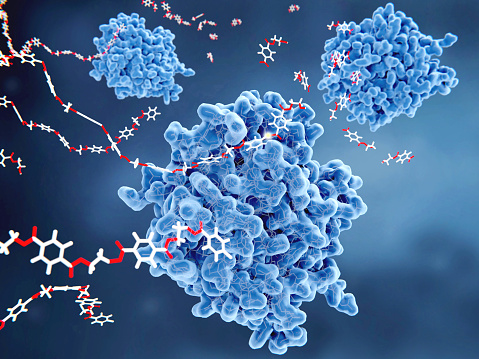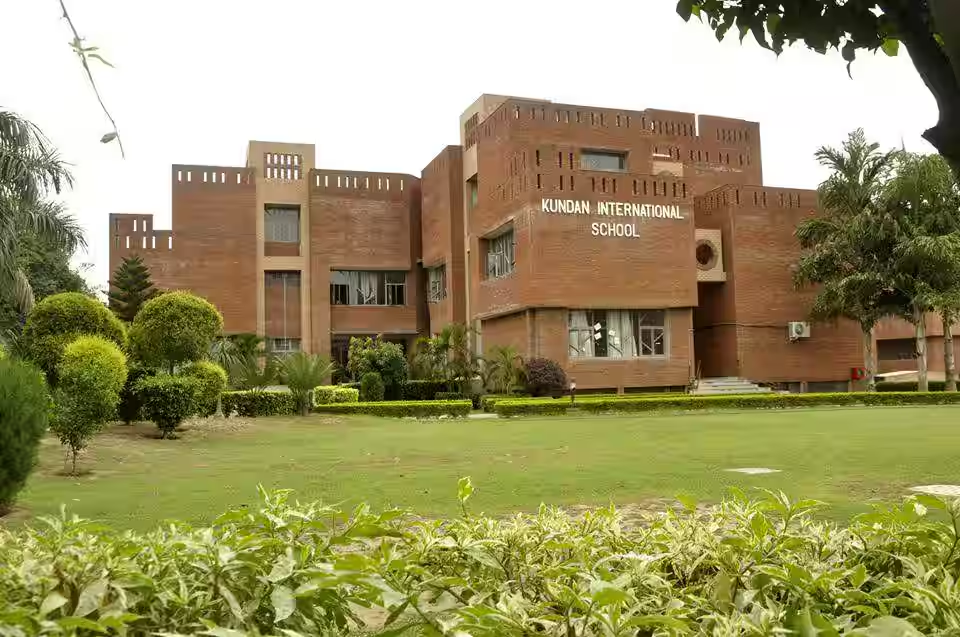Enzymes are substances that regulate the rate at which chemical reactions take place in our body and during the production of certain products. The chemical reactions include digestion, breathing, healing, and blood coagulation, among others.
Enzyme molecules bring reactant molecules (also called substrates)together and form an enzyme-substrate complex. After the initial reaction, the enzymes lock the molecules and transform them into a product and release them. Sometimes, one substrate can be broken down into multiple products.
The most common example of this process is the amylase enzyme, that forms a starch substrate, and the product released is simpler sugars.
They are naturally produced in our bodies but are also used in food and beverages, detergents, pharmaceuticals, diagnostics, and biotechnology, among others.
The enzymes market is increasing rapidly as different industries rely on enzymes to accelerate chemical processes and produce better results. Major industries like detergent grade enzymes market, food enzymes market, alcohol enzymes market, among others, are rapidly growing and thus propelling the demand for enzymes.
Industrial and Specialty Type of Enzymes Used Across Different Industries
- Industrial Enzymes
Industrial enzymes are used in different industries such as food and beverages, detergent, textile, and leather processing. The growth of the enzymes market has been driven by the increasing health concerns. Lactase, lipase, and protease are some of the most common enzymes used in the market.
- Speciality Enzymes
The healthcare sector has been rapidly developing to manufacture medicines according to the patients’ requirement. Due to this, enzymes are increasing in adoption in pharmaceuticals, animal nutrition, food and beverages, and biotechnology. The main enzymes used in these sectors include carbohydrase, proteases, and lipases, among many others.
The Function of these Enzymes
The lactase enzyme breaks down lactose (milk sugar) found in milk into glucose and GA lactose for better absorption.
Lipase helps break down fats in food during digestion, as fat in its normal form cannot be digested. Lipase is produced in the pancreas, mouth, and stomach.
Protease enzymes break down proteins in food and help in its digestion. Carbohydrase enzymes function in the stomach to breakdown carbohydrates into simple sugar, and the amylase enzyme does this process.
So, the question arises, how are these enzymes utilized in the mentioned sectors?
Their general function is to speed up the chemical reaction and quickly receive the accurate product result. They are crucial in making various products like cheese, beer, bread, and much more.
Without the enzymes present in the yeast, bread would not be easy to make. The amylase enzyme breaks down the starch into maltose and glucose sugar molecules. Then, in the next step, the yeast consumes these simple sugars and produces alcohol and carbon dioxide, involving 12 enzymes.
Using synthetic enzymes instead of whole yeast would be very inefficient, as you would have to use all the different enzymes to complete the whole process.
A similar process is used to produce cheese too, but in place of yeast, bacteria are used to perform glycolysis.
Enzymes are also used in detergents to help remove the mechanical process of stains. The most common enzyme used in detergents is hydrolases. They help in breaking down and removal of protein, lipid, and polysaccharide soils.
Many detergents are made with two or more enzymes. Recent developments have shown that multi-enzyme systems can replace a big share of the detergent surfactant market.
The rising demand for green alternatives is driving companies and research institutes to develop and increase the production of specific enzymes in the enzymes market due to the growing environmental concerns. And as our understanding of enzymes develops, our ability to create specific enzymes will propel industrial processes in various fields such as food, cleaning, cosmetics, and plastic, among others.







